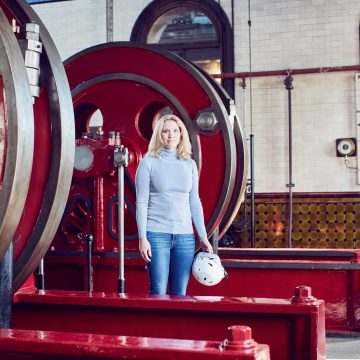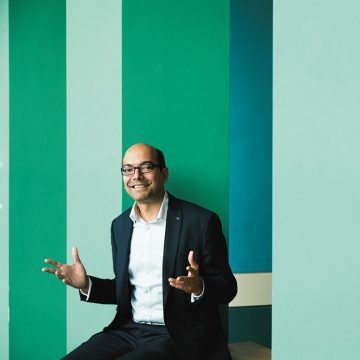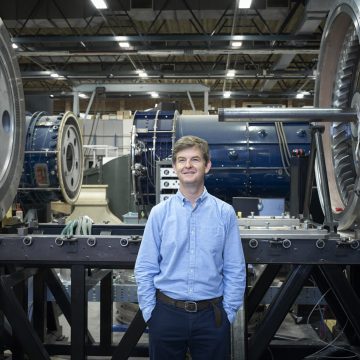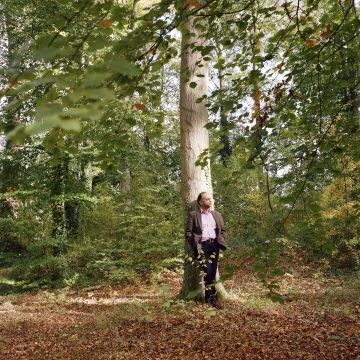Natural Capital
Professor Diane Coyle says solving the productivity puzzle is key to raising living standards – but it should not be at the price of sustainability.
How do we start to make things better? It’s a question that’s been much on Professor Diane Coyle’s mind of late. As an economic adviser to the government, she has seen the ruinous effects of the Covid-19 crisis on the economy at first-hand. But, she says, this is also a moment of opportunity.
“We have created huge generational inequality in all kinds of different ways. We have run down natural resources and contributed to climate change. Young people are more likely to be in precarious jobs, unable to get on the housing ladder, and have a burden of debt from their education. Investment in their future is not just economically necessary; it’s also, I think, a moral obligation. The structure of the economy is changing and there is now a lot of interest in thinking about different policy frameworks.”
Increased productivity has long been identified as a way to make things better for the largest possible number of people. “Loosely speaking, productivity is what you get out of what you put in,” Coyle says. “It’s important for driving up living standards over long periods as it’s how market economies have escaped the Malthusian trap, when you produce a bit more but then population rises as a result and people end up as hungry as they ever were. If there hadn’t been productivity growth, we would still be living like 17th- and 18th-century agricultural peasants.”
It’s normal for productivity to fluctuate, but in the UK it has flatlined since the 2008 crisis
As Co-director of the Bennett Institute, where she heads research under the themes of progress and productivity, Coyle’s work addresses what’s known as the productivity puzzle. While it’s normal for productivity to fluctuate, in the UK it has flatlined since the economic crisis of 2008. Before then, it was growing at a rate of around two per cent a year. If it had continued to grow, it would be a fifth higher than it is now.
“It’s a big change and nobody entirely understands it,” says Coyle. “It probably has several different causes. One is the zombie company effect: after the financial crisis, because interest rates were so low, companies who should have gone out of business survived. Now, their profits just about cover the cost of their debts; but they are unable to thrive, nor do they close, thus releasing their directors and staff to do something more productive. Demographics matter, too: we have an ageing population and it’s reasonable to believe that a younger workforce will drive productivity up.”
But, she points out, that’s just the start. There are also many longstanding issues in the UK economy. We lack the skills to carry out valuable activities that can create exports. Institutions for innovation need better ways to turn brilliant ideas into products that can be sold and used widely throughout society. Then there’s a lack of finance for growing companies, which has been a problem since the 1930s.
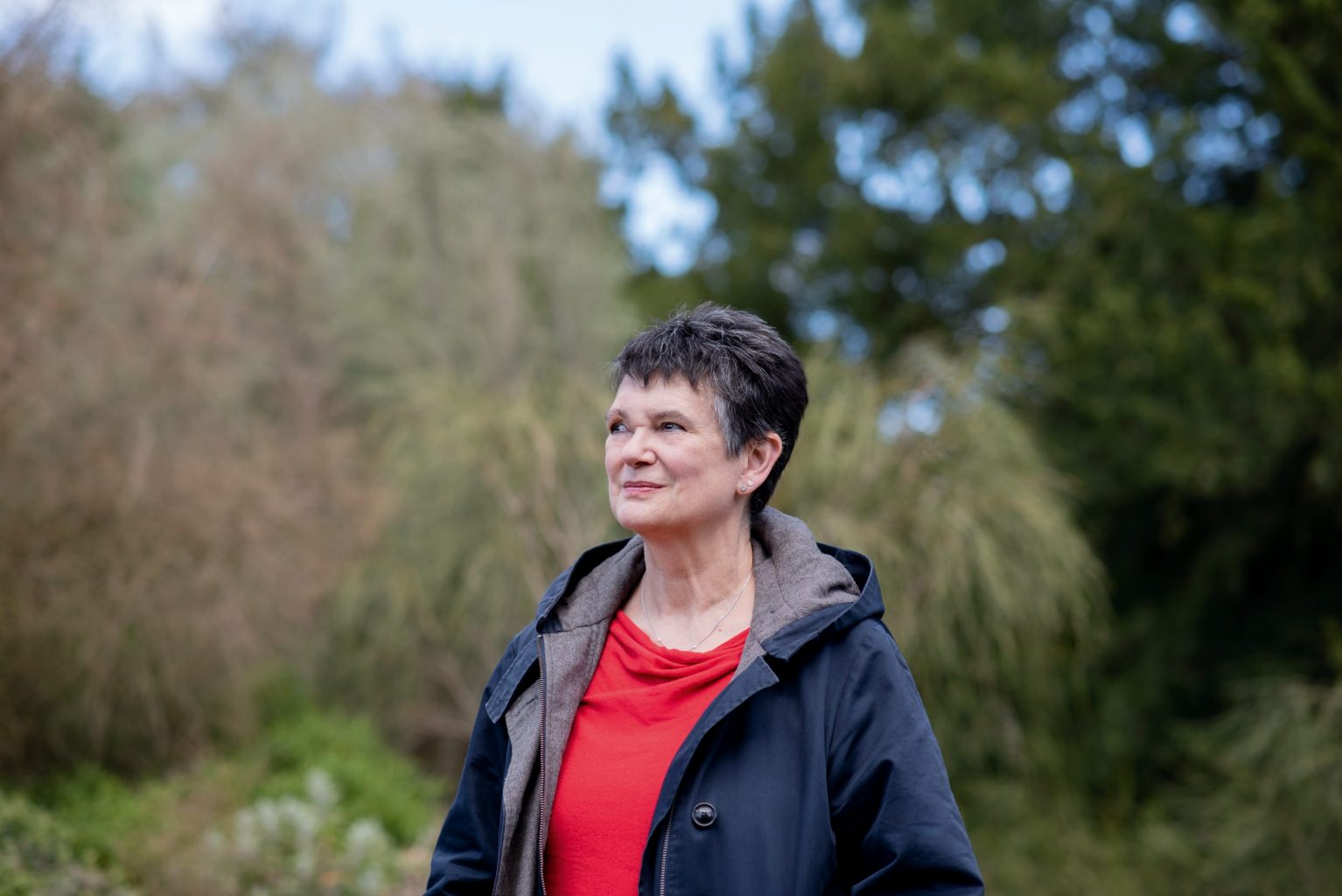
Professor Diane Coyle at the Cambridge University Botanic Garden, a key natural space within Cambridge’s urban environment.
All these different possible explanations suggest that solving the puzzle “isn’t so much about finding the ingredients as understanding the recipe and how those ingredients interact together,” says Coyle. “For example, the impact of how decisions get made both in policy and in business. And the fact that we are a centralised country. Decisions are made in Whitehall without enough information on, for example, what specific skills are needed in certain areas of the country.”
Sustainability and higher productivity aren’t mutually exclusive
And we are probably not even measuring the right things – which brings us to the question of GDP (gross domestic product), the number you get when you add up all ‘productive’ (ie paid for) work in the economy. Coyle has long advocated replacing or supplementing GDP, currently our main measure of economic success. “It’s a very narrow lens through which to decide if things are getting better.” In 2017, she won the Indigo Prize with co-author Benjamin Mitra-Kahn for their essay, Making the Future Count, which outlines six critical assets to replace the conventional economic model: physical, financial, intangible, human, natural and social capitals.
GDP, she points out, is not a natural entity. It’s a construct. It came about in the specific circumstances of the Second World War, when the US and UK governments wanted to understand what resources they had available for wartime production and the sacrifices populations had to make to free up resources for the war effort. And it’s largely about monetary exchanges in the economy: it doesn’t account for unpaid work or things without a market value.
Sustainability and higher productivity aren’t mutually exclusive, either. Today’s economy, she points out, isn’t necessarily about products and materials. While these matter, most leading economies are now service-based and increasingly intangible. “You can continue to have intangible economic growth which uses more material but at a decreasing pace. So, there’s a hope that we can get to a sustainability that would not increase our material footprint on the planet but still deliver increasing economic value. For example, in the past you might have paid a jobbing gardener to tidy up your garden. Now, you might pay a higher rate to a garden designer. As we get richer, we are willing to pay more for different kinds of services.”
Coyle herself has experienced how economics works in the real world through numerous different lenses. She was born into a working-class family in a Lancashire mill town – her father and several of her aunts and uncles worked in the cotton mills until they closed down. Her two brothers and sister went to grammar school, and then Oxford – Coyle took the same route, studying Philosophy, Politics and Economics at Brasenose College. Inspired by her tutor, legendary economist and polymath Professor Peter Sinclair – who died in March 2020, one of the early victims of the Covid-19 pandemic – she decided to become an economist.
She gained a scholarship to take her PhD at Harvard, then worked at the Treasury and as an economist in the private sector before switching careers to become The Independent’s economics editor. “That gave me a fascinating insight into how policy works in practice, the interaction with politics and the political imperatives that decision-makers face. But I am driven by trying to understand the economy, and I was limited in what you can do in 500 words. I wasn’t doing any sustained research.”
A private consultancy followed, along with significant public service roles, including Vice Chair of the BBC Trust and membership of bodies such as the Competition Commission, the Migration Advisory Committee and the Natural Capital Committee. She joined Manchester University as Professor of Economics, was awarded a CBE for her contribution to the public understanding of economics in the 2018 New Year Honours, and became the inaugural Bennett Professor of Public Policy and co-director of the newly formed Productivity Institute. “So I’ve done pretty much every career you can do as an economist,” she says.
Now focused on the productivity puzzle, she stresses the importance of thinking about what people need to help them make the most of their lives, something a recent report from the Bennett Institute’s Wealth Economy team investigated. Policy, says Coyle, is supposed to make things better for people, but “that raises two questions: which people, and what do we constitute as ‘better’? I think the answers are partly about a broader understanding about assets and what it is like to live in a certain place. What kind of community do people have? What kinds of schools and hospitals can they access? Do they have transport connections and broadband? Is the air clean or polluted? It’s like a balance sheet for their community or, nationally, a balance sheet for the economy.”
It’s the context in which you find yourself that makes a big difference to your life.
As an individual, she points out, there’s a limit to how much you can change your life for the better. “Working hard might make some difference. But it’s the context in which you find yourself that makes a big difference to your life. Improving that context is all about policy. And we’ve got to do a lot of investing in the future. That’s going to be by government spending money – whether they borrow it or increase taxes – because at the moment private businesses are not going to invest. They’ve got no revenues coming in. They don’t know what demand is going to be like next year. So only government can step in at the moment.”
Nonetheless, how we make things better is a question that we should all be asked, and be answering, says Coyle – it’s not just a matter for technical experts, statisticians and economists. “It isn’t a technical question. It’s a value-laden one. As experts, we need to pay more attention to what people themselves consider to be their own progress and their own wellbeing.”
Diane Coyle’s latest book, Markets, State and People – Economics for Public Policy, examines how societies reach decisions about the use and allocation of economic resources. Read more about the Bennett.

